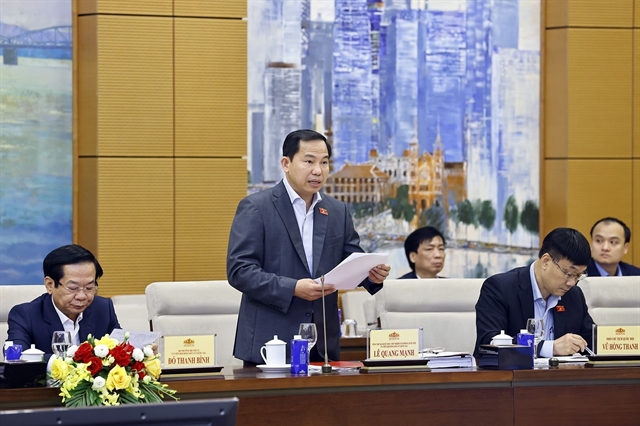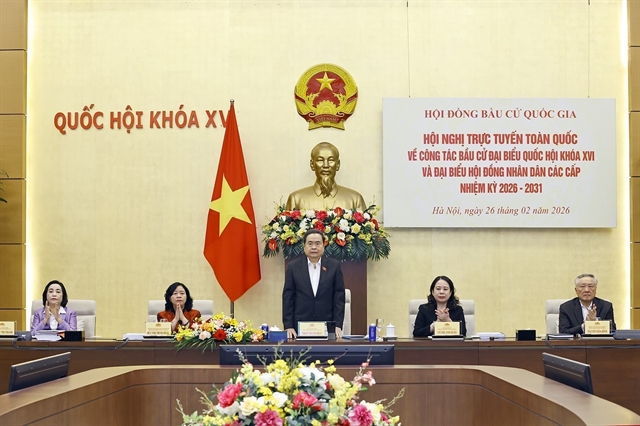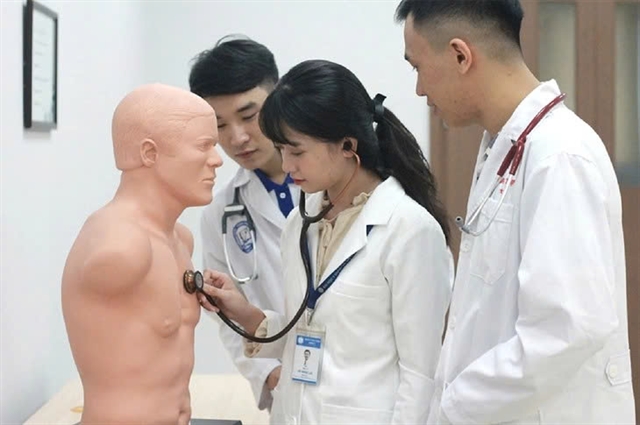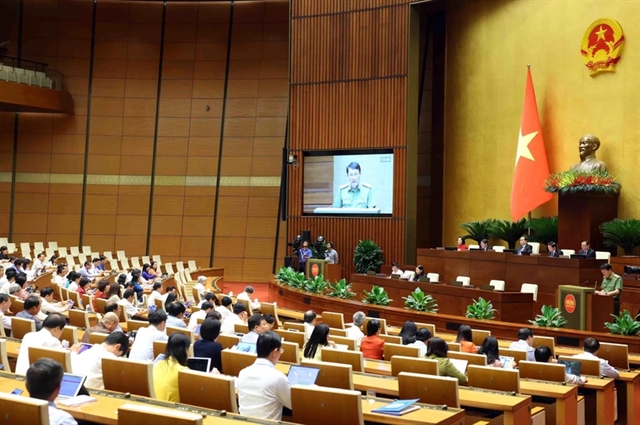 Politics & Law
Politics & Law
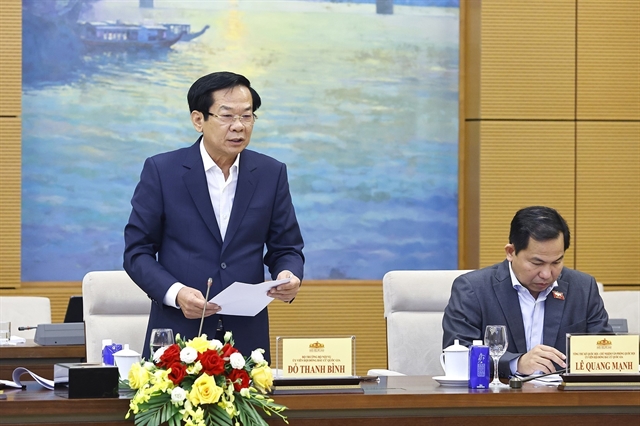
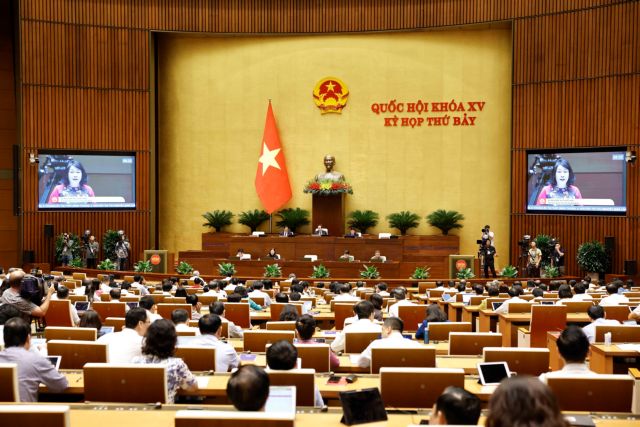 |
| An overview of the session. — VNA/VNS Photo Doãn Tấn |
HÀ NỘI — The National Assembly (NA) on Monday morning discussed a draft amended Law on Human Trafficking Prevention and Control, during their seventh session.
Deputy Trịnh Thị Tú Anh, from the Central Highlands province of Lâm Đồng, asserted that the law's more comprehensive amendment better implemented Việt Nam's membership responsibilities under international treaties.
The draft amended law contains a system of articles and clauses regulating the rights of victims, protecting the victims and their relatives, showing enhanced rights and protections compared to the existing Law on Human Trafficking Prevention and Control from 2011.
She proposed adding regulations on relatives of victims and people being identified as victims to Clause 11, Article 3, to ensure privacy and avoid causing harm or danger to them later.
She also suggested adding protection measures for relatives of victims and the ones being identified as victims.
Regarding gender equality, deputy Tráng A Dương, from Hà Giang northern mountainous province, said that the draft amended law clearly demonstrated the principle.
The amended law has regulations on respecting legal rights and interests, not discriminating against victims, and on education to prevent and combat human trafficking.
But, he believes that the regulations are not clear on gender issues in preventing and combating human trafficking. Women and girls are more vulnerable to sexual trafficking, while male child victims will be targeted by traffickers for labour exploitation and criminal activities. The injuries of male and female victims were also quite different in terms of severity, he said.
Therefore, Dương wanted to supplement the principle of ensuring gender equality and a victim-centred approach in preventing and combating human trafficking.
Expand scale of application
Several deputies wanted to expand the scope of the draft amended law, to include trading in fetuses and illegal labour exploitation.
Delegate Trần Khánh Thu, from Thái Bình northern province, cited a report from the Ministry of Public Security showing that in the five years from 2018 to 2022, the country detected 394 cases with 837 people violating the laws related to human trafficking.
In the previous period from 2012 to 2020, human trafficking was mainly abroad, accounting for over 80 per cent of cases, more recently more human trafficking cases happened in the country.
In 2022 alone, the number of domestic cases accounted for 45 per cent of the total.
"Human trafficking is identified by the United Nations as one of the four most dangerous crimes in the world. Today with technology development, traffickers only need to sit in one location and use Zalo and Facebook networks to connect, lure people abroad or exchange victims for sale domestically,” said Thu.
Therefore, to increase the effectiveness and efficiency in the fight against human trafficking, amending and supplementing the law was necessary, she said.
According to Thu, a new criminal behaviour involves trading in fetuses in the womb.
The fetuses trading begins from the time of pregnancy until the child is not yet born. According to Việt Nam's current criminal law, a child is only considered human and has citizenship rights when he or she is born. While still in the womb, one cannot be considered a human being and is not yet the victim of a crime.
Therefore, the authorities have no legal basis to handle the act of buying and selling fetuses and at present, this has happened in many localities, is a dangerous act for society and violates ethics, good customs and traditions.
Thus, it is necessary to supplement criminal prosecution against fetal trading.
Law on the Organisation of People's Courts
The NA on Monday approved the revised Law on the Organisation of People's Courts, with 94.25 per cent of the participating deputies voting in favour.
The freshly-passed law consists of nine chapters and 152 articles, introducing new policies and regulations on the organisation and operation of the courts, while also pertaining to various agencies such as investigation, procuracy and civil judgment enforcement agencies. It also interacts with multiple procedural laws.
At the meeting, part of the NA's ongoing seventh session, Chairwoman of the NA's Committee for Judicial Affairs Lê Thị Nga reported that the NA Standing Committee issued a full report on June 22, providing explanations on and revisions to the draft for further review and approval. Earlier, in a dispatch dated June 20, the Supreme People's Court concurred with the entire content of the bill and gave several opinions about the explanation report.
The draft law maintains the current regulations regarding province and district level People's Courts.
Among the adjusted provisions, it permits audio recording of the entire court proceedings and meetings, while video recording is restricted to the opening of trials and announcement of judgments.
Recording activities require the consent of the presiding judge and relevant parties as stipulated. — VNS

